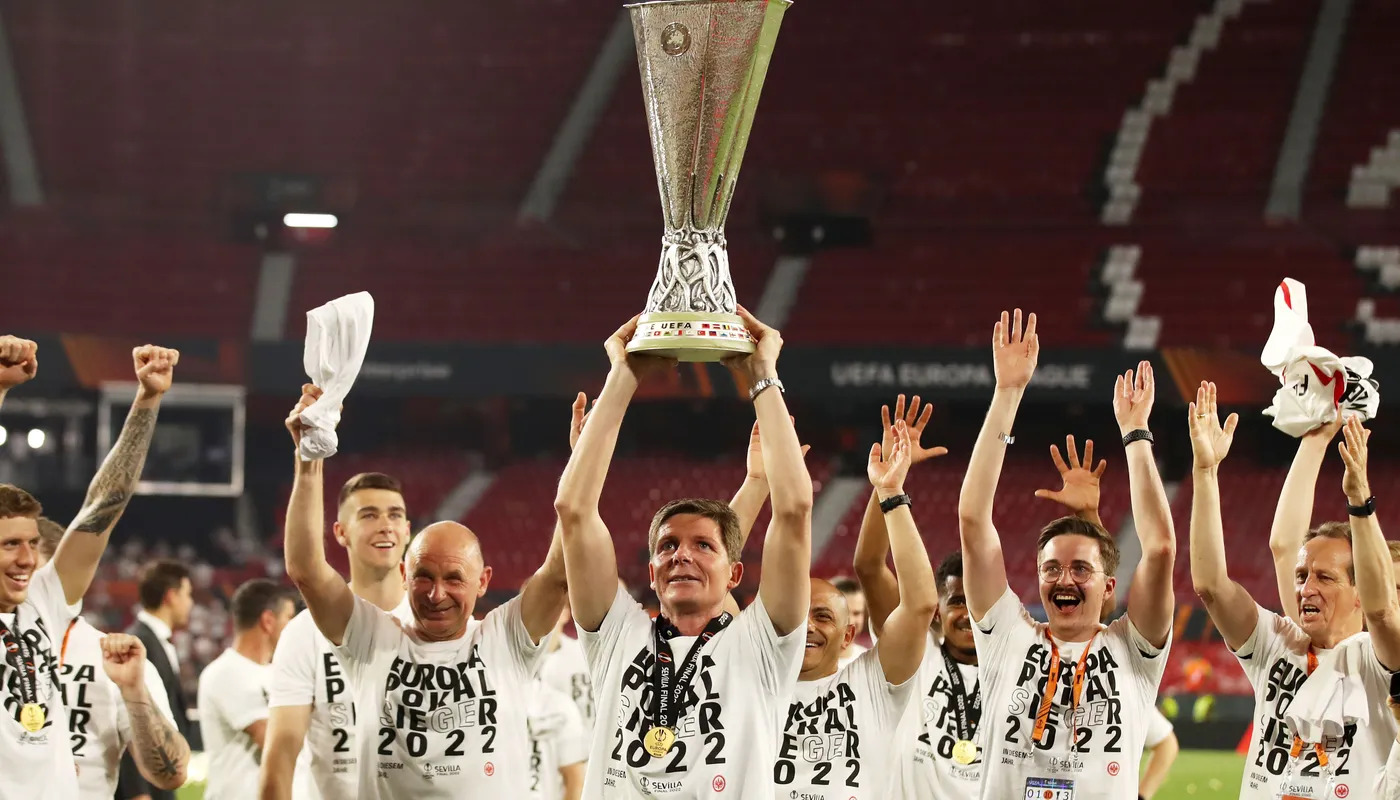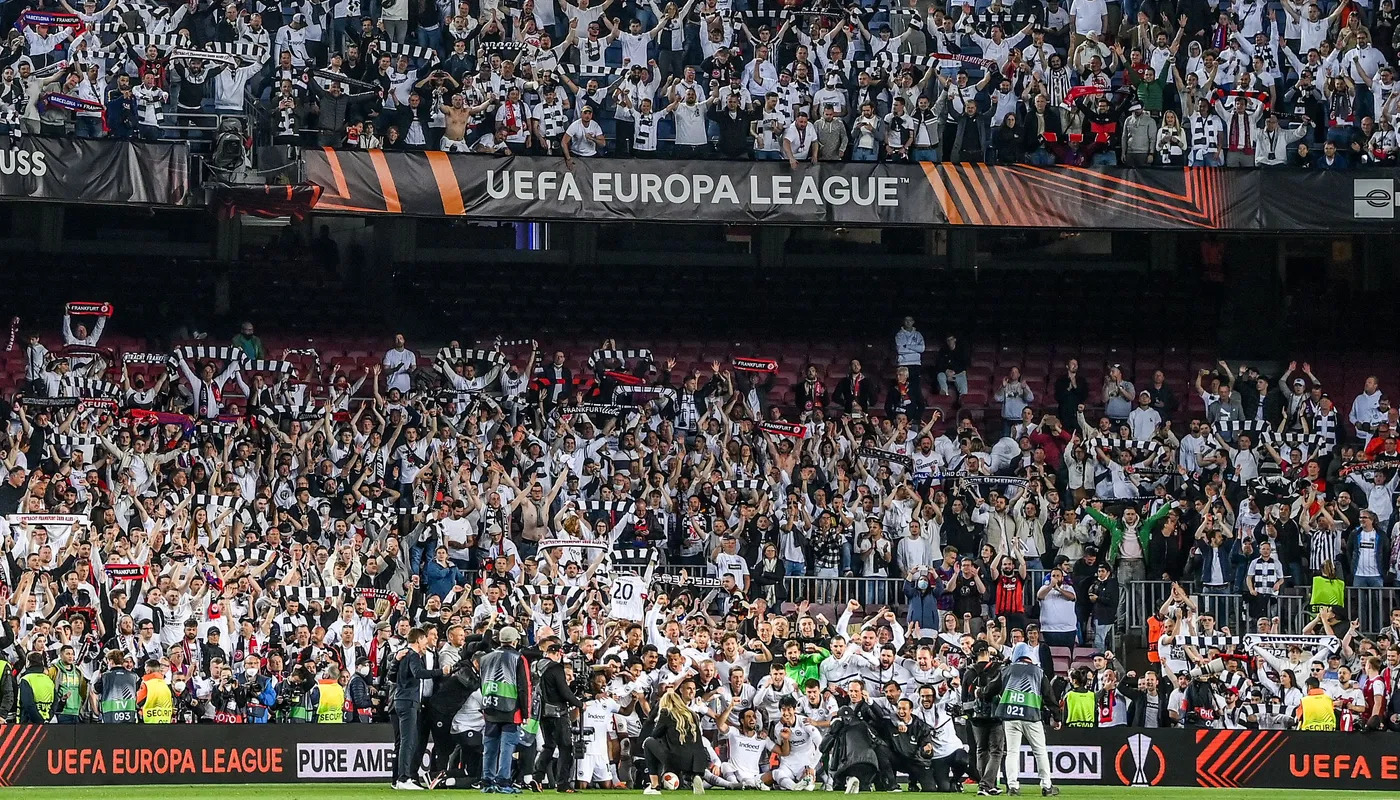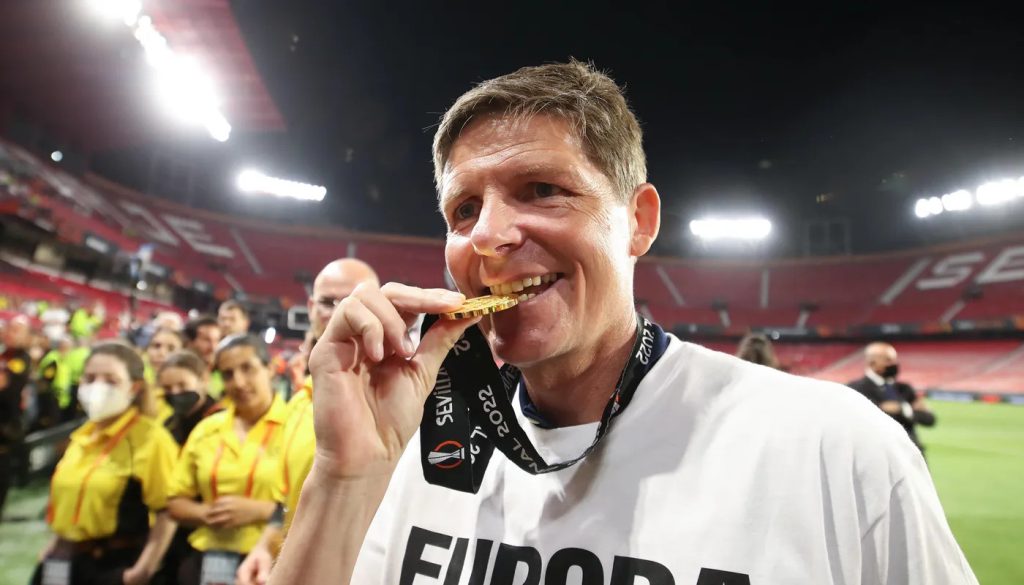German football specialist Matt Ford examines Oliver Glasner’s path through the Bundesliga from playing for Austrian team SV Ried to his present position as manager of Crystal Palace.
Manager analysis: Oliver Glasner
Mud-stained and jubilant, Oliver Glasner emerged from the Stuttgart turf after Frankfurt’s 2022 German Cup semi-final victory. This moment wasn’t just about the win; it was a cathartic release after weeks of struggle following their Europa League triumph.
The preceding months were a stark contrast. Frankfurt, once soaring in the Bundesliga’s top four, hadn’t won a league game in two months. Champions League aspirations seemed a distant dream. The final, a 2-0 loss to Leipzig, proved to be Glasner’s farewell. Now, after a brief hiatus, he returns to management at Selhurst Park. But what can Crystal Palace expect from the Austrian manager?
The “difficult few weeks” hinted at Glasner’s emotional intensity and passion. He’s a demanding coach, known for his tactical acumen and emphasis on a high-tempo pressing game. While demanding, he fosters honesty and trust with his players, evident in his post-match celebration with the fans.
Despite challenges in Frankfurt, Glasner’s resume boasts impressive achievements. He guided Wolfsburg to Champions League qualification and delivered Frankfurt Europa League glory. He’s a proven winner who relishes building strong team spirit.
Crystal Palace fans can expect a passionate, demanding coach with a clear vision. Glasner’s arrival signifies a new chapter, and while his methods may require adaptation, his track record and dedication suggest an exciting future for the Eagles.
The direct route to goal
A few days after the celebratory mud in Stuttgart, and amidst a winless streak, Oliver Glasner’s press conference took a fiery turn. He fiercely defended his team against accusations of lacking effort, a stark contrast to the jubilant Europa League celebrations.
“Stop with this rubbish!” he fumed, visibly red-faced. “They’re in their second cup final in two years, going through fire! Of course they get it!”
Glasner’s outburst, while heated, highlighted his passion and dedication. He led Eintracht Frankfurt to Europa League glory and a Champions League run, arguably the club’s most successful period ever.

This success hasn’t gone unnoticed. “You don’t win the Europa League with Eintracht Frankfurt unless you’re a top coach,” says Christopher Michel, a Frankfurt journalist. “His attacking style, with high pressing and directness, could be great for the Premier League.”
With Glasner’s passionate leadership and proven tactical philosophy, it’s clear why clubs like Crystal Palace see potential in him. Whether he can replicate his success in England remains to be seen, but his fiery defense of his team speaks volumes about his character and determination.
Expectations and reality
Oliver Glasner’s two-year tenure at Eintracht Frankfurt was a success story, culminating in Europa League glory. However, the club’s ambitions grew alongside his own, leading to an inevitable clash.
Sporting director Markus Krösche publicly set a top-four finish target after the Europa League win, but Glasner felt the squad lacked the necessary reinforcements to achieve it. Key departures like Filip Kostic and Martin Hinteregger further amplified the gap between vision and reality.
Local newspaper Hessenschau reflected this sentiment, with 63% of readers disagreeing with Glasner’s dismissal. Journalist Patrick Michel adds, “Glasner wanted a higher quality squad and the Napoli defeats frustrated him. The spirit waned, and arguments arose.”
How Wolfsburg and Frankfurt changed Glasner
Oliver Glasner, known for his fiery press conferences and demanding coaching style, has undergone a remarkable transformation. Gone is the “personality development coach”-needing Bundesliga firebrand, replaced by a more measured tactician.
Glasner’s journey is one of evolution and adaptation. His playing career tragically ended after a brain injury, leading him to explore different tactical systems. He found success with Wolfsburg, utilizing both a back-three and a 4-2-3-1, maximizing players like Wout Weghorst. Despite Europa League qualification, Glasner prioritized a different challenge at Frankfurt.

His ambition, his “greatest weakness,” led him to forego Champions League football for the Europa League, seeking a new challenge and proving his abilities on a different stage. His emotional connection with the passionate Frankfurt fans further softened his edges, turning him from a “bore” to a “highly emotional person.”
Now, Glasner arrives in the Premier League, a league with less managerial control but potentially greater rewards. He carries the confidence of his former players, who describe him as both demanding and personable.
His arrival at Crystal Palace promises exciting football, potentially echoing the “mudslides” of fan support he witnessed at Frankfurt. Whether he can guide Palace to European glory remains to be seen, but one thing is certain: the Premier League has gained a manager who has already undergone a fascinating transformation.


